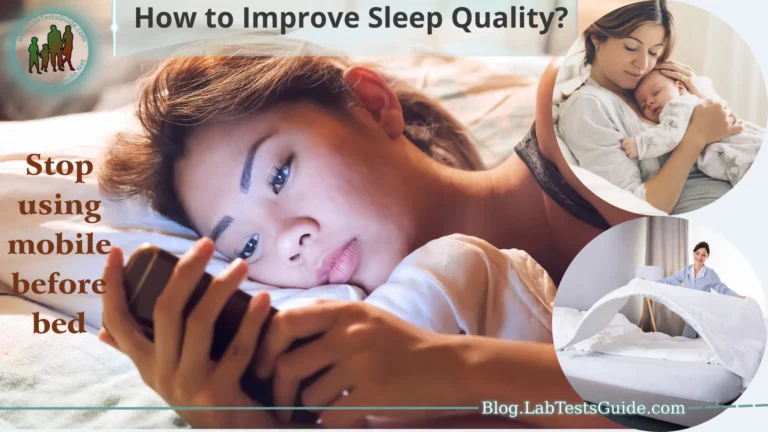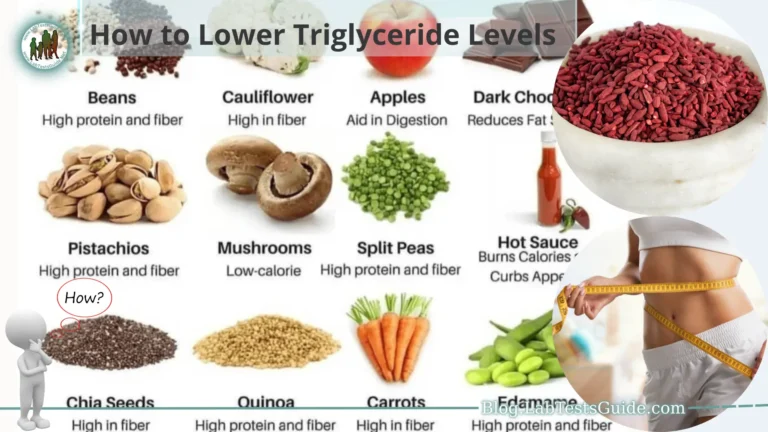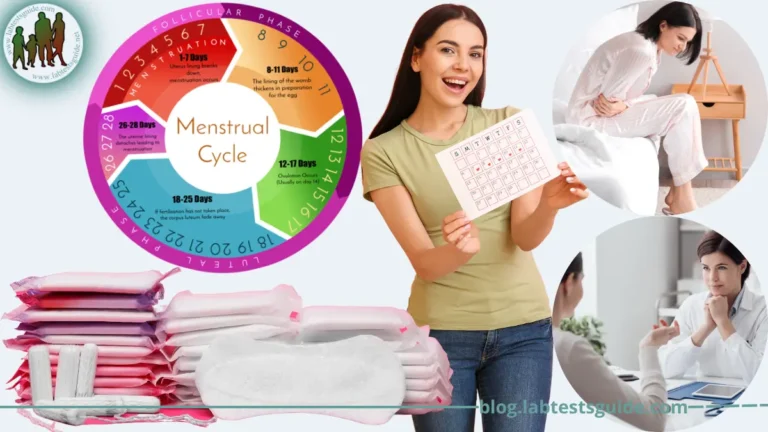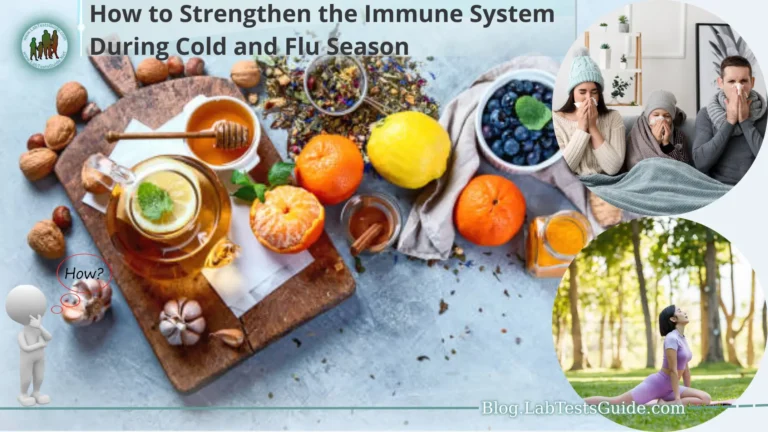Hemorrhoids, a common yet often uncomfortable and distressing condition, affect millions of individuals worldwide. They are swollen veins in the anal and rectal region that can cause itching, pain, bleeding, and discomfort during bowel movements. While hemorrhoids are generally not life-threatening, they can significantly impact a person’s quality of life. Fortunately, there are various preventive measures, lifestyle changes, and treatment options available to manage hemorrhoids effectively.

In this comprehensive guide, we will explore how to prevent and manage hemorrhoids, offering practical tips and strategies to alleviate symptoms and promote overall anal health. We will delve into the causes and types of hemorrhoids to gain a better understanding of the condition’s roots. From dietary modifications, regular exercise, and proper bathroom habits to topical treatments, medical procedures, and home remedies, we will provide a range of options to suit individual preferences and needs. Whether you’re seeking ways to prevent hemorrhoids from developing or searching for solutions to ease existing discomfort, this guide aims to empower you with the knowledge to take control of your anal health and lead a more comfortable and fulfilling life.
What Are Hemorrhoids?
- Hemorrhoids are swollen and inflamed veins in the lower rectum or anus.
- They can occur internally, inside the rectum, or externally, under the skin around the anus.
- Hemorrhoids can be classified into two main types: internal hemorrhoids and external hemorrhoids.
- Internal hemorrhoids are typically painless and may cause bleeding during bowel movements.
- External hemorrhoids can be painful and cause discomfort, especially when sitting or during bowel movements.
- Straining during bowel movements, chronic constipation, and prolonged sitting are common risk factors for developing hemorrhoids.
- Pregnancy, obesity, and a sedentary lifestyle can also increase the risk of hemorrhoids.
- Hemorrhoids are not usually a serious medical condition, but they can cause significant discomfort and affect a person’s quality of life.
- Proper preventive measures and lifestyle changes can help manage hemorrhoids and reduce the likelihood of their occurrence.
How to Prevent and Manage Hemorrhoids:
Maintain a Healthy Diet:
Include high-fiber foods in your diet, such as fruits, vegetables, whole grains, and legumes. Fiber helps soften the stool, making it easier to pass, and reduces the strain on the rectal veins. Ensure adequate hydration by drinking plenty of water throughout the day. Proper hydration also helps in keeping the stool soft and prevents constipation.
- Regular Exercise: Engage in regular physical activity to promote bowel regularity and improve circulation. Aim for at least 30 minutes of moderate exercise most days of the week.
- Avoid Straining During Bowel Movements: Don’t strain or hold your breath while passing stools. If you’re having difficulty, consider increasing your fiber intake or using a stool softener under medical supervision.
Maintain Proper Bathroom Habits:
Don’t delay or resist the urge to have a bowel movement. Waiting can lead to harder stools and increased pressure on the rectal veins. Avoid sitting on the toilet for prolonged periods, as it can put unnecessary pressure on the anal area.
- Weight Management: Maintain a healthy weight through a balanced diet and regular exercise. Excess weight can increase pressure on the rectal veins, contributing to hemorrhoid development.
- Don’t Overuse Laxatives: While occasional use of laxatives may be helpful for constipation, avoid relying on them regularly, as they can lead to dependence and worsen hemorrhoids.
- Avoid Heavy Lifting: If your job or daily activities involve heavy lifting, take care to use proper lifting techniques and avoid straining excessively.
- Stay Active and Avoid Prolonged Sitting: If you have a sedentary job, make an effort to stand up and move around at regular intervals to improve blood flow in the rectal area.
- Use Proper Seating Posture: Sit on a cushioned seat with good support to reduce pressure on the rectal area. Avoid sitting on hard surfaces for prolonged periods.
- Topical Treatments: Over-the-counter creams and ointments containing ingredients like hydrocortisone or witch hazel can help reduce itching and discomfort.
- Home Remedies: Warm compresses or sitz baths (sitting in warm water) can provide relief from pain and inflammation.
Preventive Measures:
- Maintain a High-Fiber Diet: Include plenty of fiber-rich foods in your diet, such as fruits, vegetables, whole grains, nuts, and seeds. Fiber helps soften stools, making them easier to pass and reducing the risk of constipation and straining.
- Stay Hydrated: Drink an adequate amount of water throughout the day. Proper hydration helps keep stools soft and prevents constipation.
- Regular Exercise: Engage in regular physical activity to promote bowel regularity and improve blood circulation, which can reduce the risk of developing hemorrhoids.
- Avoid Prolonged Sitting: Take breaks from sitting for extended periods, especially if you have a sedentary job. Stand up, stretch, and move around to improve blood flow in the anal area.
- Don’t Delay Bowel Movements: Respond promptly to the urge for a bowel movement to avoid constipation and straining.
- Use the Bathroom Properly: Don’t strain excessively during bowel movements. If needed, use a footstool to elevate your feet, allowing for a more natural squatting position.
- Manage Weight: Maintain a healthy weight through a balanced diet and regular exercise, as excess weight can put more pressure on the rectal veins.
- Avoid Heavy Lifting: Use proper lifting techniques to minimize strain on the lower back and abdominal area, which can contribute to hemorrhoids.
- Practice Good Anal Hygiene: Gently clean the anal area after bowel movements using mild, unscented soap and water. Avoid using rough or scented toilet paper.
- Wear Comfortable Clothing: Avoid tight-fitting clothes that may constrict blood flow in the anal and pelvic region.
- Limit Spicy Foods and Alcohol: For some individuals, spicy foods and alcoholic beverages can exacerbate hemorrhoid symptoms. Consider reducing or avoiding these items if you notice a connection.
- Avoid Prolonged Standing: If your job requires prolonged standing, try to shift your weight from one leg to another and take short breaks when possible.
Lifestyle Changes:
- Regular Exercise: Engage in moderate physical activity regularly to promote overall circulation and bowel regularity. Walking, swimming, and cycling are excellent low-impact options.
- High-Fiber Diet: Incorporate fiber-rich foods like fruits, vegetables, whole grains, and legumes into your meals to prevent constipation and straining during bowel movements.
- Stay Hydrated: Drink an adequate amount of water daily to keep stools soft and easy to pass.
- Avoid Straining During Bowel Movements: Respond promptly to the urge for a bowel movement and avoid straining. If necessary, use a footstool to elevate your feet during bowel movements, which can mimic a squatting position and aid in easier elimination.
- Proper Bathroom Habits: Avoid spending excessive time on the toilet and don’t force bowel movements. Relax and let them occur naturally.
- Weight Management: Maintain a healthy weight through a balanced diet and regular exercise to reduce pressure on the rectal veins.
- Adequate Restroom Time: Create a routine for using the restroom and allow yourself enough time without feeling rushed. Establishing regular bowel habits can help prevent constipation.
- Avoid Prolonged Sitting: Take breaks from prolonged sitting to improve blood flow in the anal area. Stand up, stretch, and move around at regular intervals.
- Opt for Loose and Comfortable Clothing: Avoid tight-fitting clothing, especially around the waist and buttocks, as it may restrict blood flow to the anal area.
- Limit Alcohol and Caffeine: Both alcohol and caffeine can lead to dehydration and potentially exacerbate constipation. Moderation is key if you choose to consume these beverages.
Topical Treatments:
Over-the-Counter Creams and Ointments.
- There are various over-the-counter (OTC) creams and ointments available that contain ingredients like hydrocortisone or witch hazel.
- Hydrocortisone creams help reduce inflammation and itching associated with hemorrhoids.
- Witch hazel is a natural astringent that can provide soothing relief to the affected area.
Medicated Wipes:
- Medicated wipes, also known as hemorrhoidal wipes, are pre-moistened with soothing ingredients like witch hazel or aloe vera.
- These wipes are gentle on the skin and can be used for cleansing the anal area after bowel movements to reduce irritation.
Soothing Bath Soaks:
Warm sitz baths can help alleviate discomfort and reduce swelling. Fill a bathtub or sitz bath basin with warm water and soak your lower body for 15-20 minutes. Adding Epsom salts or baking soda to the water can enhance the soothing effect.
- Lidocaine-Based Topical Products: Some OTC products contain lidocaine, a local anesthetic, which provides temporary pain relief by numbing the area.
- Aloe Vera Gel: Applying pure aloe vera gel directly to the affected area can help soothe irritation and reduce inflammation.
- Cold Compresses: Applying a cold compress or ice pack to the external hemorrhoids can temporarily reduce swelling and provide relief from discomfort.
- Calamine Lotion: Calamine lotion contains zinc oxide and can help relieve itching and irritation caused by hemorrhoids.
- Petroleum Jelly: Applying a thin layer of petroleum jelly around the anus can create a barrier that helps protect the irritated skin and reduce friction.
- Non-Alcoholic Moisturizers: Avoid alcohol-based wipes or products as they may irritate the sensitive skin around the anus. Opt for non-alcoholic, hypoallergenic moisturizers if needed.
Follow Instructions and Avoid Overuse:
- When using any topical treatment, it’s crucial to follow the manufacturer’s instructions and recommended dosage.
- Avoid excessive use of topical products, as they may lead to skin irritation or sensitivity.
Medical Procedures for Hemorrhoids:
Rubber Band Ligation:
- Rubber band ligation is a common and effective procedure for treating internal hemorrhoids.
- During the procedure, a small rubber band is placed around the base of the hemorrhoid, cutting off its blood supply.
- The hemorrhoid eventually withers and falls off, typically within a few days, and is expelled during bowel movements.
Sclerotherapy:
- Sclerotherapy involves injecting a chemical solution into the hemorrhoid, causing it to shrink and scar, which helps reduce blood flow to the affected area.
- The scar tissue helps support the veins and prevent the hemorrhoids from protruding.
Infrared Coagulation (IRC):
- Infrared coagulation is a non-surgical procedure that uses infrared light to coagulate the blood vessels within the hemorrhoid.
- This causes the hemorrhoid to shrink and eventually disappear over time.
Hemorrhoidectomy:
- Hemorrhoidectomy is a surgical procedure performed to remove large or severely prolapsed internal or external hemorrhoids.
- It is typically done under general anesthesia and involves cutting out the hemorrhoid tissue.
Stapled Hemorrhoidopexy (PPH):
- Stapled hemorrhoidopexy is a minimally invasive surgical procedure used to treat prolapsed hemorrhoids.
- During the procedure, a circular stapling device is used to reposition the hemorrhoids back into their normal position within the anus, reducing blood flow and reducing prolapse.
- Laser coagulation uses a laser to coagulate the blood vessels within the hemorrhoid, causing it to shrink and heal.
Doppler-Guided Hemorrhoidal Artery Ligation (DGHAL):
DGHAL is a specialized procedure that uses a Doppler ultrasound to locate the arteries supplying blood to the hemorrhoids. The surgeon then ligates these arteries, reducing blood flow to the hemorrhoids and causing them to shrink.
- Hemorrhoidal Circular Stapler (HCS): The HCS procedure uses a circular stapling device to remove excess hemorrhoid tissue and restore normal anatomy.
Home Remedies for Hemorrhoids:
- Warm Compresses: Applying a warm, damp compress to the affected area can help soothe inflammation and relieve discomfort.
- Sitz Baths: Taking sitz baths, where you sit in warm water for 15-20 minutes, can provide relief from pain and itching.
- You can add Epsom salts or baking soda to the water for added comfort.
- Witch Hazel: Witch hazel is a natural astringent with anti-inflammatory properties. Applying witch hazel to the affected area can help reduce swelling and soothe irritation.
- Aloe Vera: Aloe vera gel can be applied topically to reduce inflammation and provide cooling relief to hemorrhoids.
- Apple Cider Vinegar: Diluted apple cider vinegar can be used as a natural remedy to reduce itching and inflammation. Apply it to the affected area with a cotton ball.
- Ice Packs: Applying ice packs or cold compresses to external hemorrhoids can help reduce swelling and provide temporary pain relief.
- Petroleum Jelly: Applying a thin layer of petroleum jelly around the anus can protect the irritated skin and reduce friction during bowel movements.
- Over-the-Counter Creams and Ointments: As mentioned earlier, there are various OTC creams and ointments available that contain ingredients like hydrocortisone or witch hazel, which can provide relief from itching and discomfort.
- Epsom Salt Soaks: Adding Epsom salts to warm water in a sitz bath can help soothe the affected area and promote healing.
- Non-Alcoholic Wipes: When cleansing the anal area, use non-alcoholic, hypoallergenic wipes or moistened toilet paper to avoid further irritation.
When to See a Doctor:
- Persistent or Severe Symptoms: If you experience persistent or severe pain, itching, or discomfort in the anal area, it’s time to seek medical attention.
- Uncontrolled Bleeding: If you notice significant or continuous bleeding from the rectum or notice blood in your stool, consult a doctor promptly.
- Changes in Bowel Habits: Any sudden changes in your bowel habits, such as increased frequency, constipation, or difficulty passing stool, should be evaluated by a healthcare professional.
- Prolapsed Hemorrhoids: If you have external hemorrhoids that become swollen, painful, or protrude from the anus, it’s essential to get medical advice.
- Signs of Infection: If you notice signs of infection, such as fever, increased redness, warmth, or pus around the affected area, see a doctor immediately.
- Recurrent Hemorrhoids: If you have a history of hemorrhoids that recur frequently or are not responding to home remedies or over-the-counter treatments, consult a healthcare professional for further evaluation and management.
- Severe Discomfort Impacting Daily Life: If hemorrhoid symptoms are affecting your daily activities, quality of life, or sleep, it’s time to seek medical guidance.
- Bleeding that Doesn’t Stop: If you experience prolonged bleeding or bleeding that doesn’t stop after a reasonable amount of time, seek immediate medical attention.
- Pre-existing Health Conditions: If you have pre-existing health conditions or are taking medications that may interact with over-the-counter treatments, consult a doctor before using any new remedies.
FAQs:
What are hemorrhoids, and what causes them?
Hemorrhoids are swollen and inflamed veins in the rectum and anus. They can be caused by increased pressure on the veins in the pelvic and rectal area, often due to straining during bowel movements, chronic constipation, pregnancy, obesity, and prolonged sitting.
What are the common symptoms of hemorrhoids?
The common symptoms of hemorrhoids include itching, pain, discomfort, swelling, and sometimes bleeding during bowel movements.
How can I prevent hemorrhoids from developing?
Preventive measures include maintaining a high-fiber diet, staying hydrated, exercising regularly, avoiding prolonged sitting, and not straining during bowel movements.
Can I treat hemorrhoids at home?
Yes, many mild cases of hemorrhoids can be managed with home remedies such as sitz baths, topical treatments (creams and ointments), and dietary adjustments. However, severe or persistent symptoms may require medical attention.
When should I see a doctor for hemorrhoids?
You should see a doctor if you experience persistent or severe symptoms, uncontrolled bleeding, changes in bowel habits, or signs of infection around the affected area.
Are there medical procedures to treat hemorrhoids?
Yes, medical procedures for hemorrhoids include rubber band ligation, sclerotherapy, infrared coagulation, hemorrhoidectomy, stapled hemorrhoidopexy, and other surgical options.
Can I use over-the-counter creams for hemorrhoid relief?
Yes, over-the-counter creams and ointments containing hydrocortisone or witch hazel can help alleviate itching and discomfort associated with hemorrhoids.
Are there any lifestyle changes that can help manage hemorrhoids?
Yes, lifestyle changes such as regular exercise, maintaining a high-fiber diet, avoiding heavy lifting, and managing weight can contribute to managing hemorrhoids effectively.
Are hemorrhoids a serious medical condition?
Hemorrhoids are generally not life-threatening, but they can cause significant discomfort and impact daily life. Early intervention and proper management can provide relief and prevent complications.
Conclusion:
In conclusion, hemorrhoids are a common and often uncomfortable condition caused by swollen and inflamed veins in the rectum and anus. While they are generally not life-threatening, they can significantly impact a person’s quality of life. The good news is that there are various preventive measures, lifestyle changes, and treatment options available to prevent and manage hemorrhoids effectively. Maintaining a high-fiber diet, staying hydrated, exercising regularly, avoiding prolonged sitting, and practicing proper bathroom habits can help prevent hemorrhoids from developing. Additionally, home remedies, over-the-counter treatments, and medical procedures like rubber band ligation and hemorrhoidectomy offer relief for those already experiencing symptoms. For persistent or severe cases, it is crucial to seek medical attention and advice to ensure appropriate evaluation and personalized treatment. By taking proactive steps and seeking professional guidance when needed, individuals can improve their anal health and lead a more comfortable and fulfilling life.






